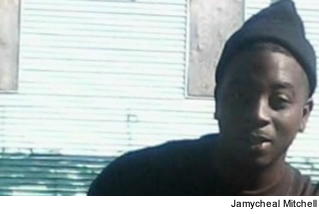
The Office of the State Inspector General of Virginia’s recent report on Jamycheal Mitchell’s tragic death by neglect in the Hampton Roads Regional Jail has raised more questions than it has answered.
The report, which details the well-publicized death of a mentally ill African-American man who died at the Hampton Roads Regional Jail while awaiting transfer to Eastern State Hospital, is notable for what it says about the dismal state of mental health services in Virginia. Of greater concern to the public, however, should be the many issues the report doesn’t address.
Why are people with serious mental illnesses in jail in the first place? Why were law enforcement officials at the jail allowed to do a simple internal investigation and absolve themselves of wrongdoing? Who will be accountable for Mr. Mitchell’s death? Most importantly, how will we prevent this from happening again?
The report highlights many points in the system where one clerical mistake or one negligent official can leave someone to languish and die in jail. Police failed to fully understand Mr. Mitchell’s mental health history before taking him into custody for the petty crime of stealing $5 worth of junk food. Local behavioral health officials failed to meet with Mr. Mitchell and asses his worsening condition. A clerk failed to deliver the court order to transfer him to a mental health facility. Hospital officials failed to act once the order was received. Naphcare, the private company hired by the jail, failed to provide adequate healthcare to Mr. Mitchell while he was in jail. And, Hampton Roads
Regional Jail officials failed to ensure the safety of someone in their custody.
No justice system should be so tenuous and so full of pitfalls. It is a trap for many, but especially for those suffering from mental illness who now make up more than a quarter of the people being held in our jails.
Jails are Virginia’s de facto solution to a lack of community mental health services. Nearly one in four inmates have a mental illness that requires treatment with drugs. Many of these inmates are clustered into overcrowded facilities with inadequately trained staff.
The report on Mr. Mitchell’s death noted that state and local behavioral health officials consider inmates to be "in a safe environment" in these jails, and are a "lower admission priority for the Department of Behavioral Health." This is unacceptable. Jails are not therapeutic facilities. As a society, we have regressed to the 19th Century and a time of “asylums” if officials consider jail to be a safe environment for the mentally ill.
Lawmakers have known about the problems within our jails for many years. The state Department of Behavioral Health and Developmental Services monitors the process by which mentally ill people are swept up into the criminal justice system. In 2014, the agency recommended changes to procedures, further oversight and accountability, additional training, and a complete overhaul of how people with serious mental illness are treated within the criminal justice system.
Neither the General Assembly nor present nor past administrations have made these concerns and recommendations a top priority, despite reports calling for such urgency.
This past session, the General Assembly did pass House Bill 685 that seeks to prevent orders from being “lost” as was the case with Mr. Mitchell. The new law requires General District Court Clerks to transmit orders for treatment to a mental health facility by the end of the next business day and the receiving facility must acknowledge receipt of the order by the end of the following business day.
This is an inadequate first step in addressing the many problems facing our system. Even with this new law, if a judge issues an order near the weekend, it could be another five days before it is acted upon. The new law has no enforcement mechanism, as it absolves any individual official of liability except in cases of gross negligence or willful misconduct. It is a rule without a remedy for the people and families affected by a broken system.
Our thoughts are with Mr. Mitchell’s family. It should not take a “critical incident,” as the report calls Mr. Mitchell’s death, to spur the state into action. We must put pressure on public officials to continue to investigate Mr. Mitchell’s death until all questions are answered, and those responsible are held accountable.
The ACLU of Virginia and many other community advocates have continuously called upon public officials to reform our criminal justice system. People with serious mental illnesses should be taken to treatment centers, not to jail.

